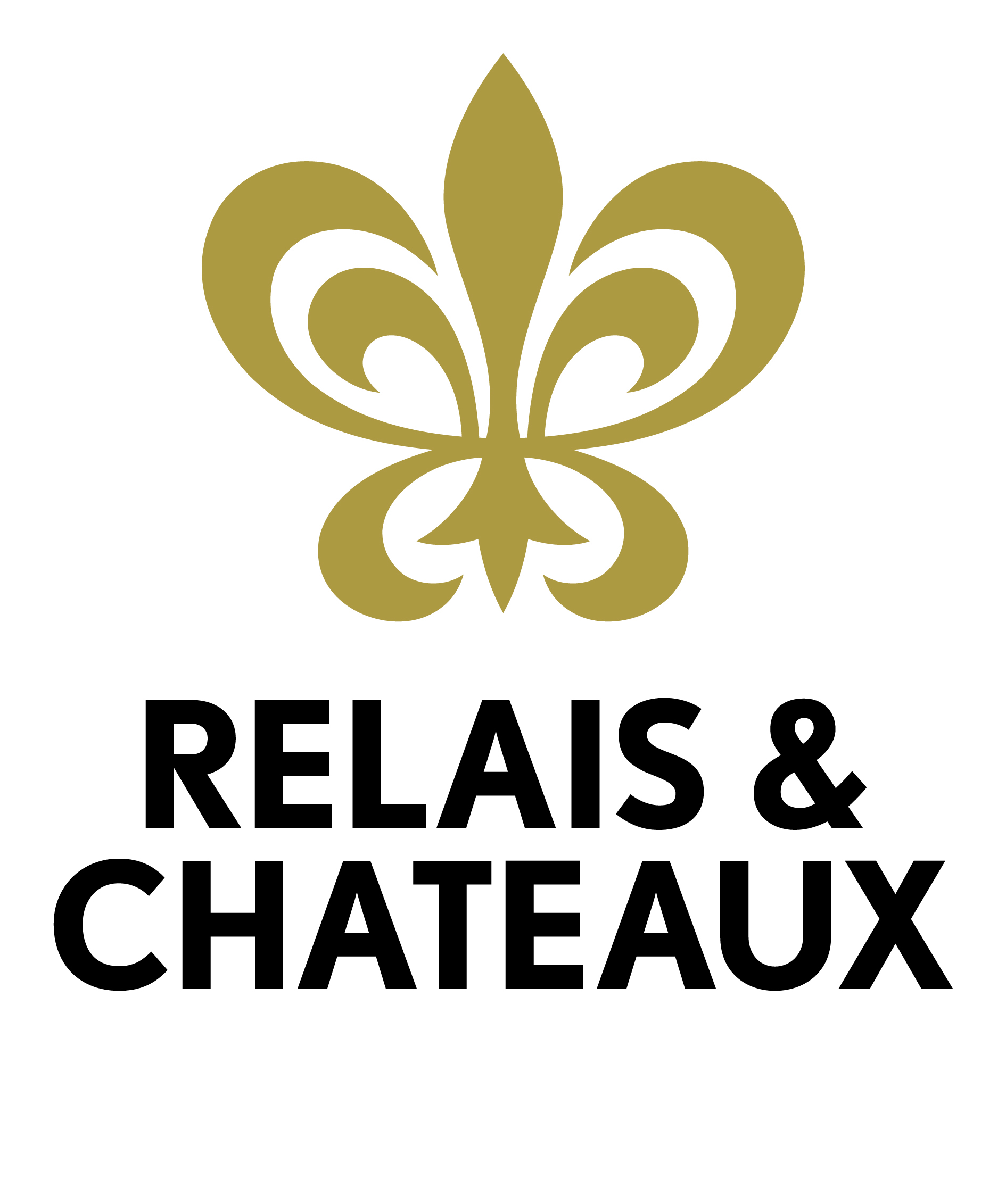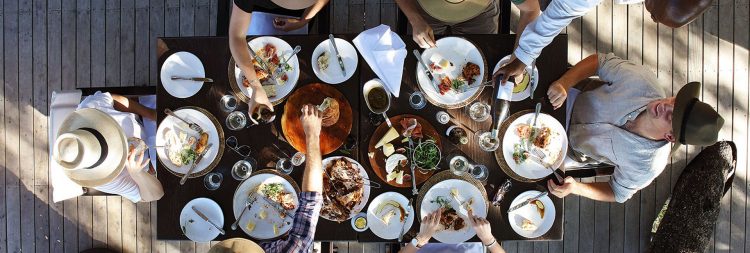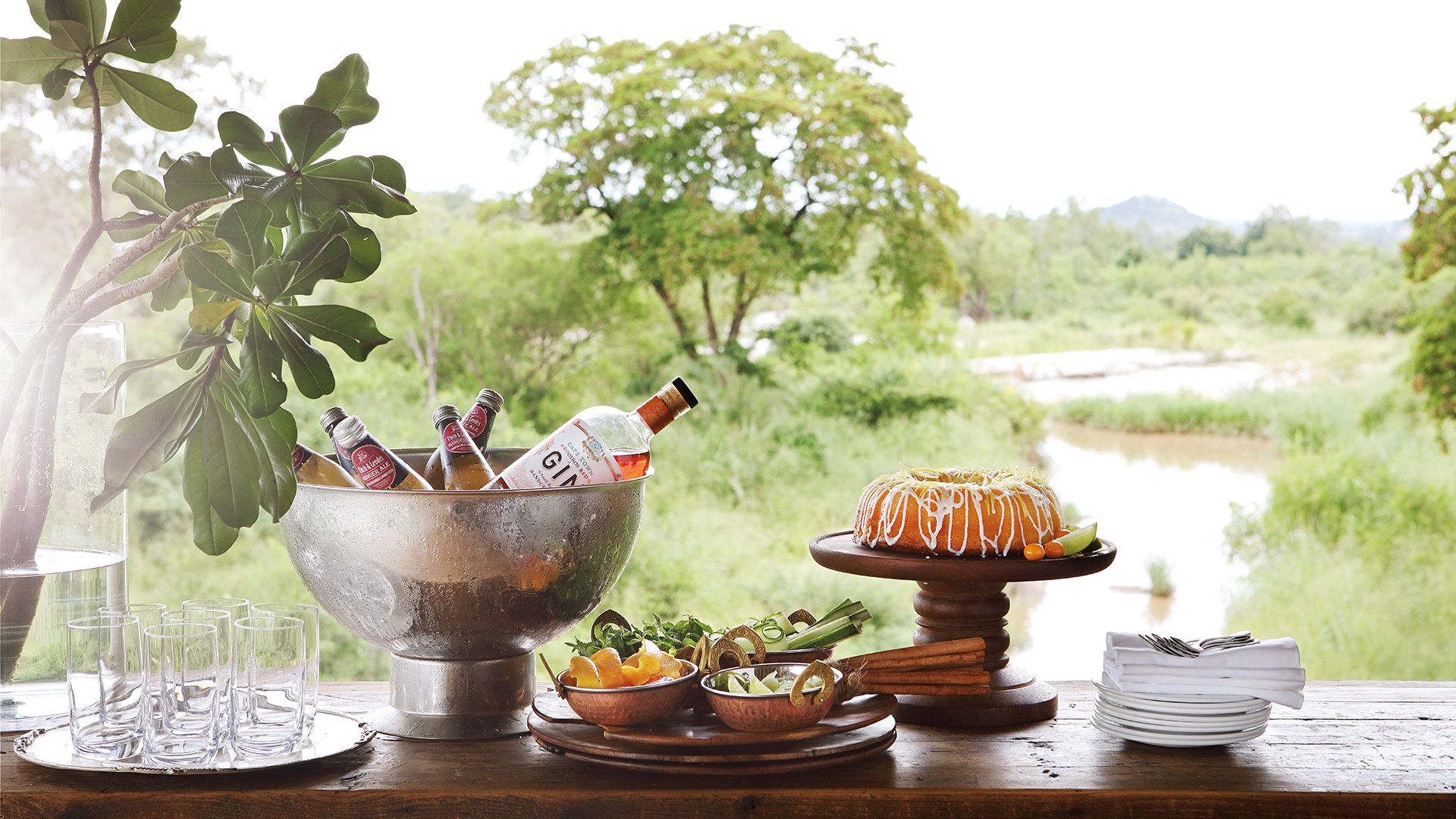
These are the conversations that change us. They don’t simply pass the time. They stop time. They’re the moments when you realise you’re part of something much greater. These are the conversations that make us see just how connected everything is – how our ideas to protect the planet – Earth’s air, water, wilderness and wildlife – are in fact plans to protect humankind.
In this “Find the Others” conversation with Dave Varty, of Londolozi in South Africa, we look at the very thing that gives us life – food. Through Dave’s words, we see not only the significance of sustainability, but also the simplicity.
While we endeavour to live more ethically, consciously and sustainably, it’s inspiring to know that there are places that we can travel to, places like Londolozi, where we can enjoy the ride and travel in good conscience.
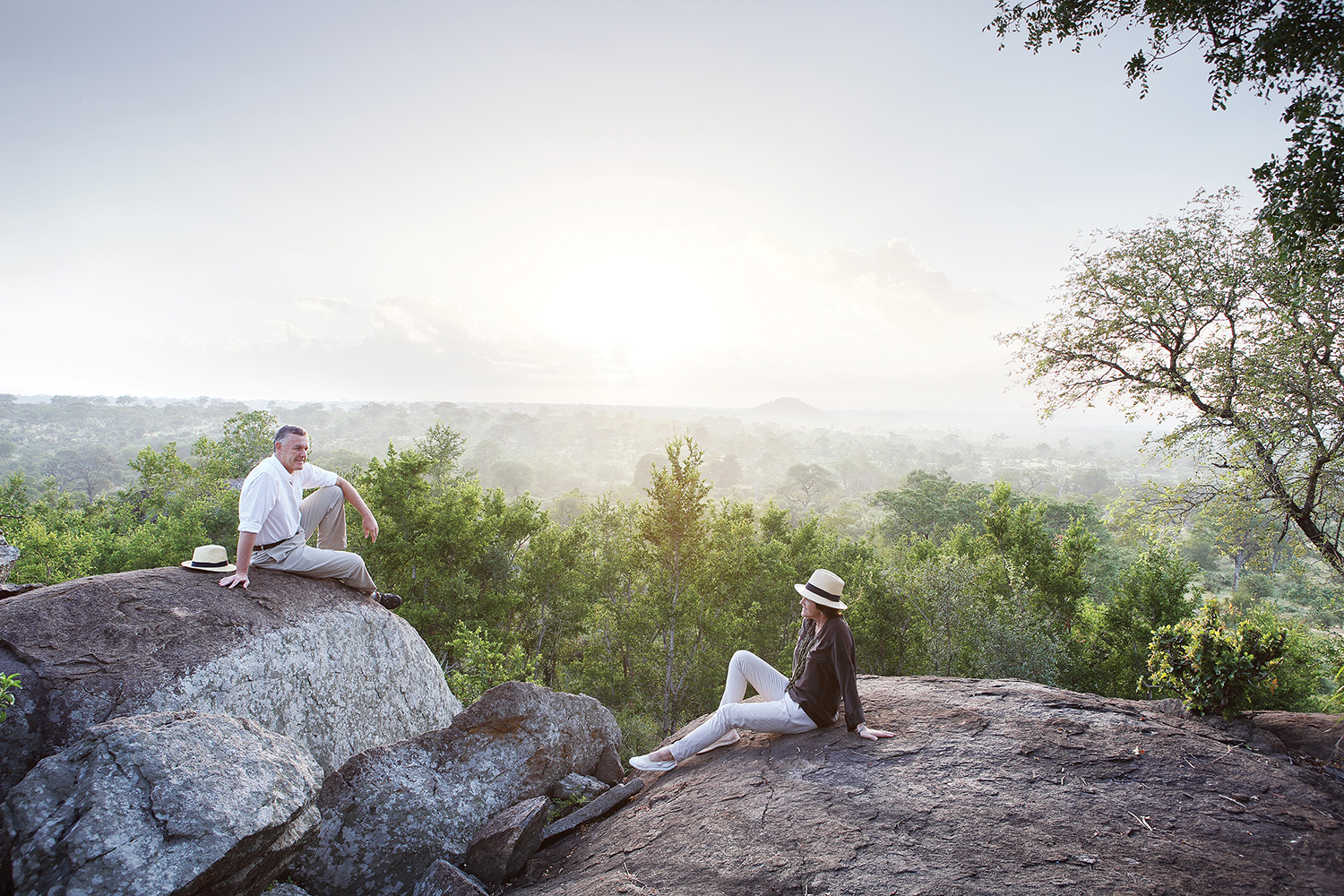
Take a look at our interview with Dave below…
Food is one of the central focuses of travelling, of safaris. It’s essential, as well as a source of great joy and union. How does food feed into your philosophy of sustainability at Londolozi?
As far as possible we try to ensure that our menu is designed in a manner in which we are not making demands on any source of protein or food which is endangered, the fish populations included. Our menus are based on the season and local sourcing as far as possible.
We are moving towards making use of the indigenous populations of animals (they are plentiful and better for the environment), some of which we are overstocked with, like impala. So we are starting to gently prune and harvest nature. I would love to tell you that we steer our menus away from beef and cattle, because they are recognised as damagers of the planet, but that would not be true. Because as a luxury lodge, we have to offer our guests choice and as long as our guests wish for that kind of choice, we have to offer it. We are strong believers in allowing each person to choose their own journey towards a deep connection to this planet we call home.
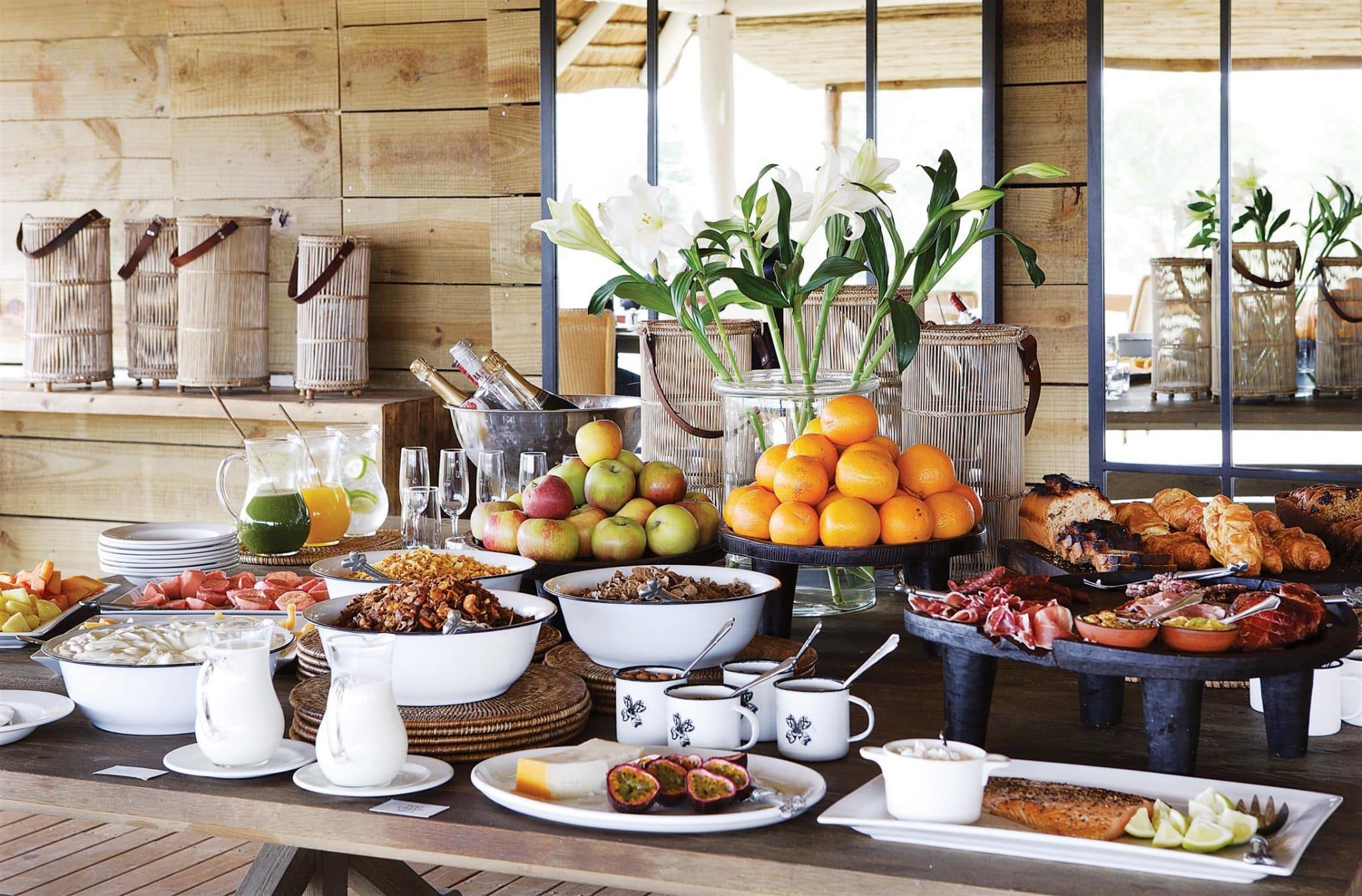
On the vegetable side, if you want quality produce, you have to get it, mostly, through the recognised supply channels. Which means your vegetables and avocados and lettuces have come a long way from the commercial farms that have the resources to grow them so that they look nice and are convenient to buy.
We are trying to break that chain and are currently investing with local farmers adjacent to the park to try and develop new supply chains where the food comes from small-scale farmers within a 100 km radius from our operations. That’s a difficult task. Because while they are farmers, they have no capacity or consistency, so it’s very difficult to get a regular supply chain going, but we are investing in that. That’s our next move.
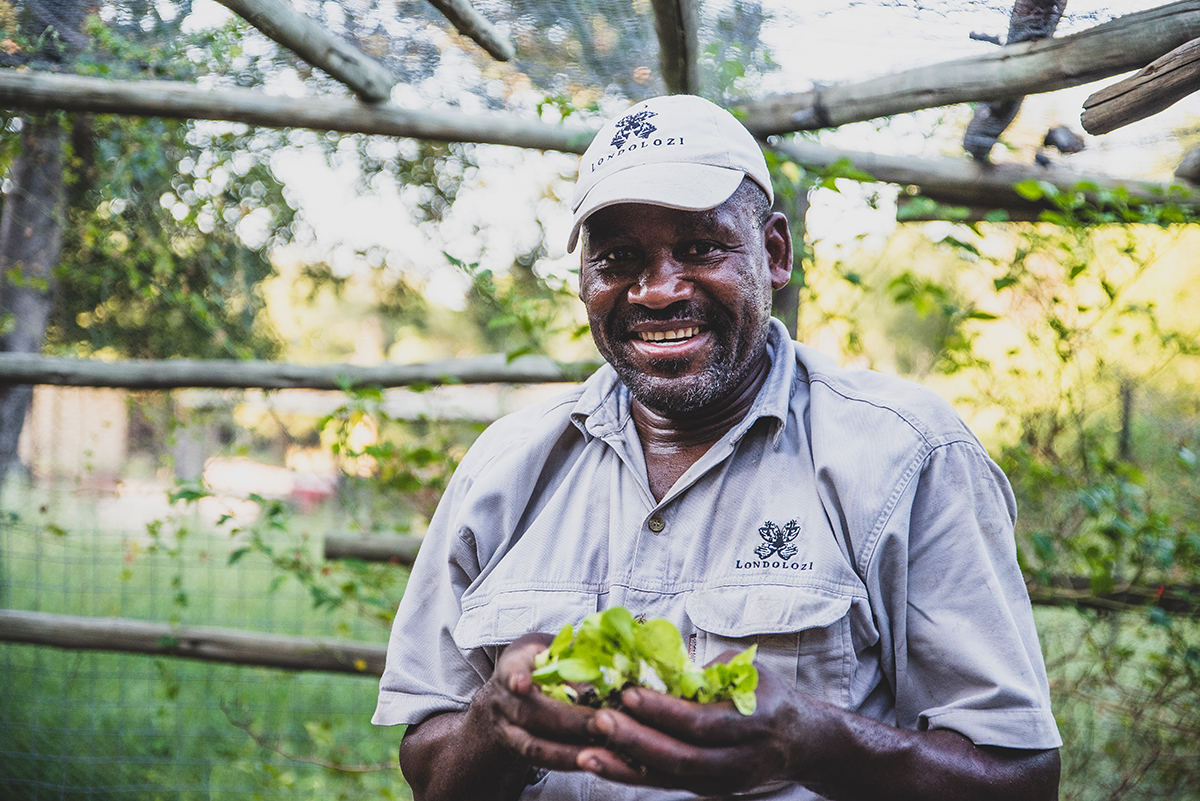
At Londolozi, through our 2020 vision which we started nearly 5 years ago, we already receive half a tonne of greens per annum from small businesses run by our staff members within the confines of our Londolozi village.
We use per annum about two tonnes of greens. Our mission, within the next two or three years, is to ensure that all greens are supplied from within the Londolozi village and the extra businesses that some of our staff have set up as mini-farmers. This is also better for our guests, because all greens are not created equal. The soil quality that the greens are grown in directly affects the nutritive value for the consumer. In short, you just can’t beat home-grown greens (loaded with love and care).

About diet itself… we’re getting more and more knowledge about diet from the information age. There is a big leaning towards balanced wellness. And we are starting to gently shift our menu, if not completely in that direction, at least by offering choice in that direction, towards a more healthy diet.
Are you seeing a change in your guests’ appetites?
Absolutely. There’s a very strong trend coming out of America where the concept of wellness travels with the individual. So if they have adopted a lifestyle in New York which is both driven by good exercise and good diet, and all those new diets which are emerging, for example nutrient-dense smoothies, the modern day traveller wants that opportunity to be presented to them when they travel.
So absolutely, we are researching what it is that the modern day millennial traveller prefers in their diet and exercise routine and we are addressing offering both at the lodge.
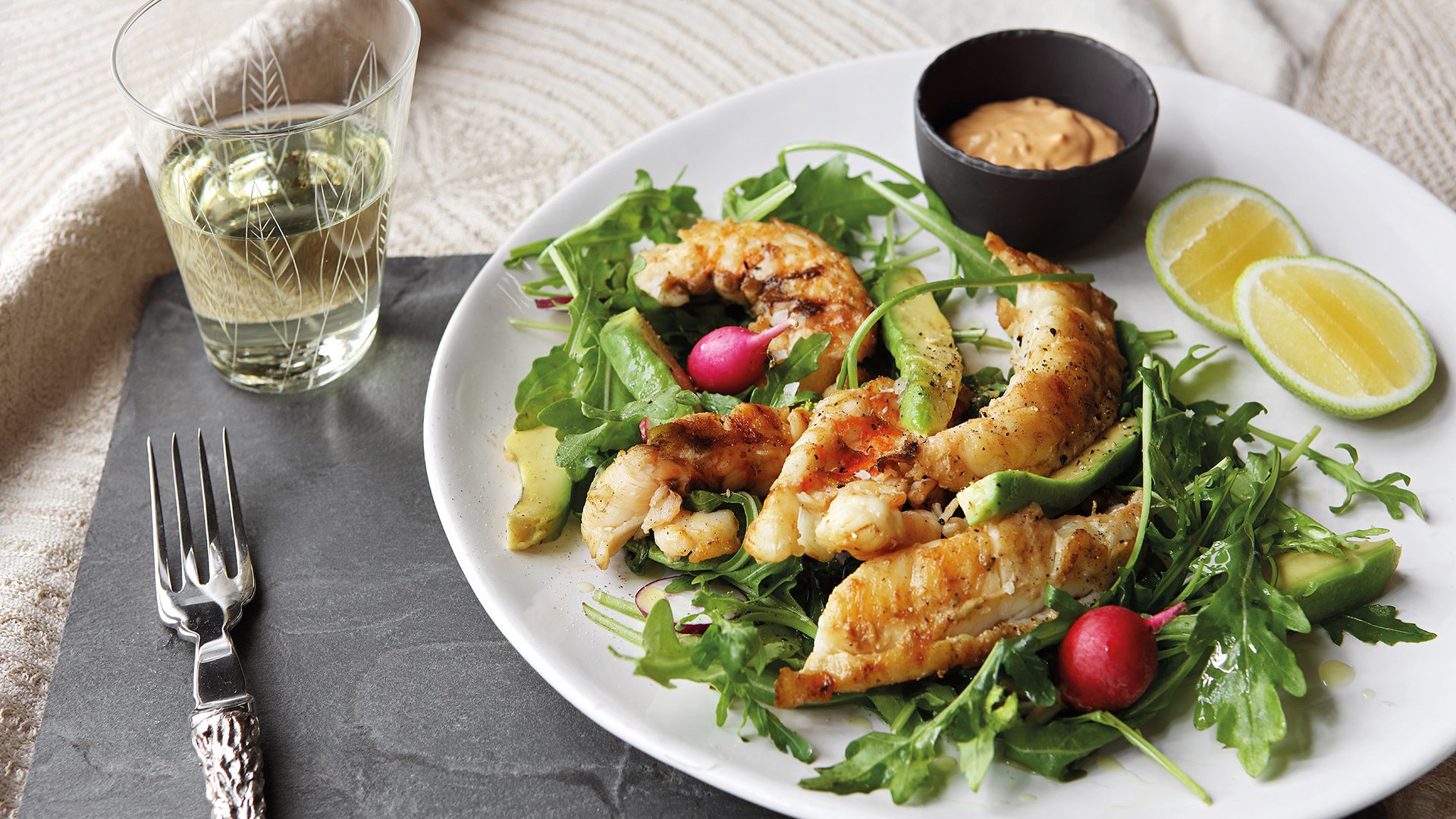
What are your diet preferences as an individual?
As an individual, I try to stay away from any red meats and fish if possible, because I actually think all fish are in trouble. My family has a Meat-less Monday. I try to stay on greens where possible. I try to not drink anything that requires big transportation and waste. I make a huge effort to only eat what’s in season and what has been sourced locally – the closer the source the better for me. It’s a journey and it’s not an easy one.
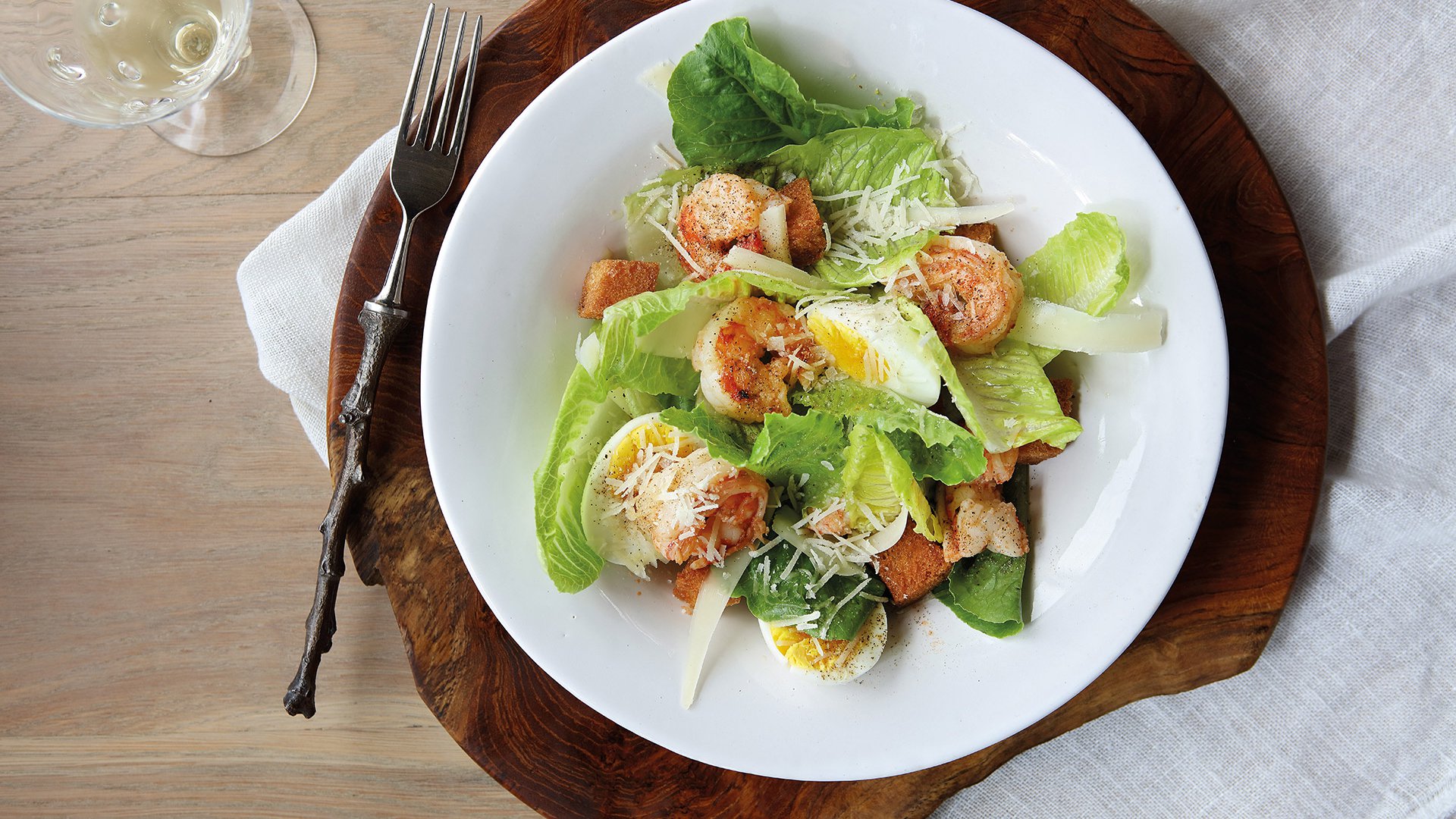
Relais & Châteaux is driving a similar kind of revolution in our approach to food, sustainability and diet and what we encourage hotels and lodges to provide to guests. This approach supports “food for change” and “ethical fish”, which is quite in harmony with what you’re talking about.
And that plays to our first point. Within the Relais & Châteaux family, at ownership level and chef level, there is a rising consciousness. And if Relais & Châteaux creates this change as leaders in hospitality, at a very significant level, they will become trendsetters for the world.
What Londolozi is trying to do is just that – aiming to become trendsetters in our own sphere. And that plays right back to our conversation about the individual role in creating a better world.
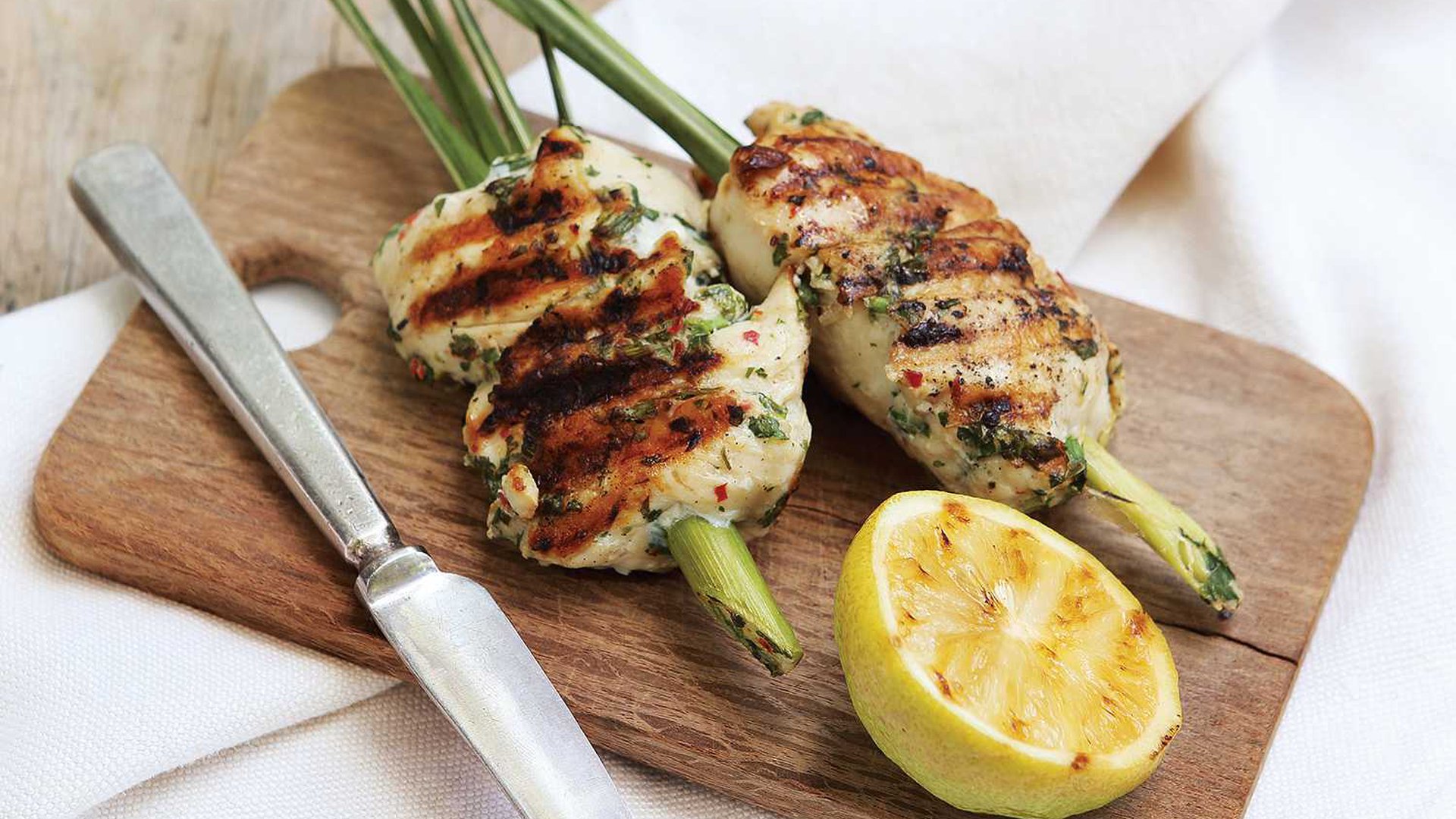
If an individual does it, and then the individual’s family does it, and then the staff at their workplace, then the whole hotel or lodge, then an entire Relais & Châteaux delegation, then whole of Relais & Châteaux… And then other hospitality groups… through this you can create a profound change in the demands we make on the earth’s resources – simply by starting with and changing yourself.
It’s the way it works. We’ve seen it throughout our time here. We call it “competing them into compliance”. So people start to look bad if they’re not doing it.
The work that Relais & Châteaux is doing regarding food and sustainability is the perfect opportunity, because Relais & Châteaux is a world leader in hospitality.
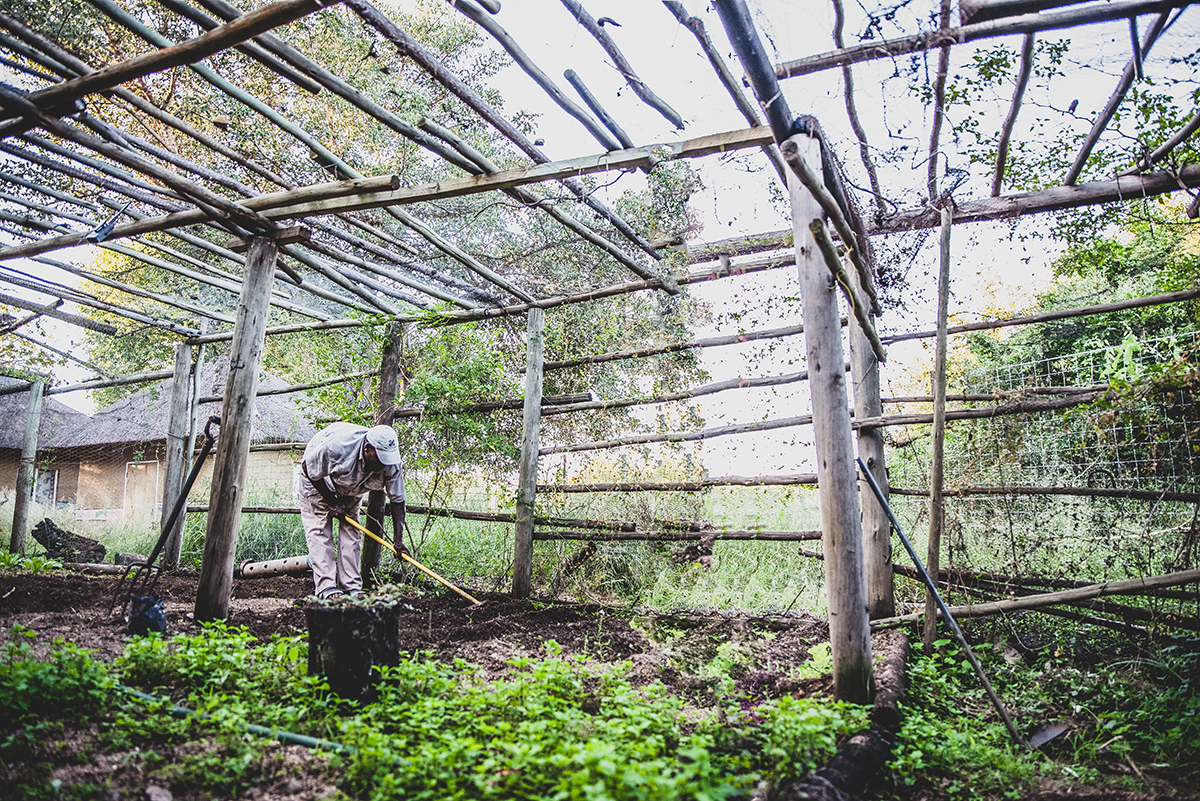
And then rather than competing over the size of our baths or suites we can compete over how good we are for the planet.
100%. That’s the point. We start to place our emphasis elsewhere. We don’t for any reason have to decrease the quality of our experience. In fact, if we can provide an emotional experience for our traveller then we improve the quality of the experience.
They become more connected.
And feel more enriched individually.
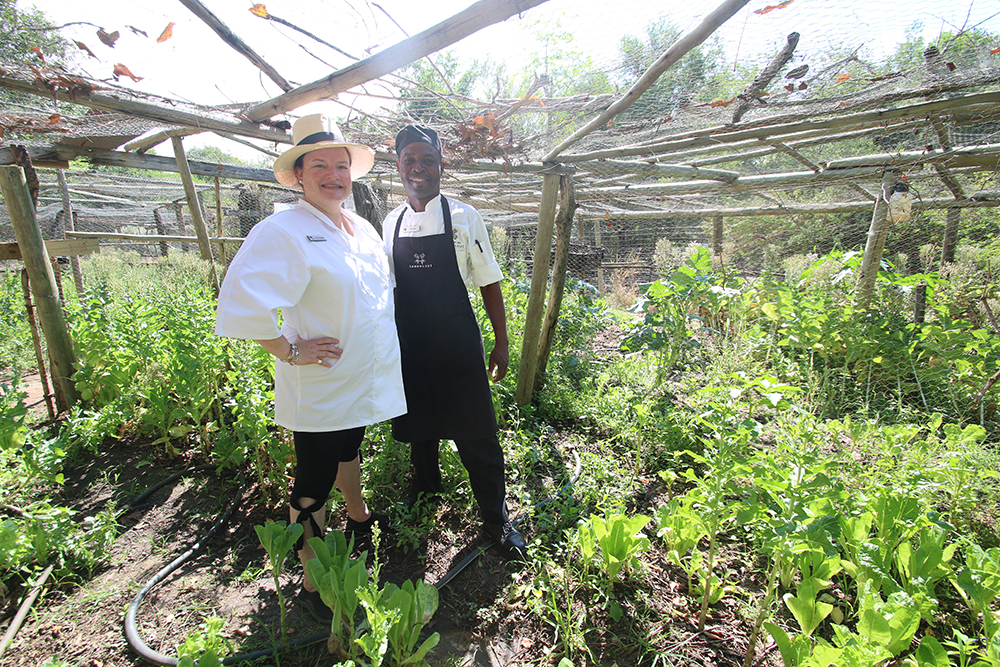
How does Londolozi’s Executive Chef, Anna Ridgewell bring sustainability into her kitchen?
Anna is at the centre of the food philosophy. She is wonderful and ensures that all our suppliers behave according to our sustainability vision, using her influence as a buyer of goods.
And once again, can you imagine the cumulative effect when every one of Relais & Châteaux’s head chefs starts to leverage their suppliers and make demands? You become a messenger for individual consciousness and then a messenger for global consciousness.
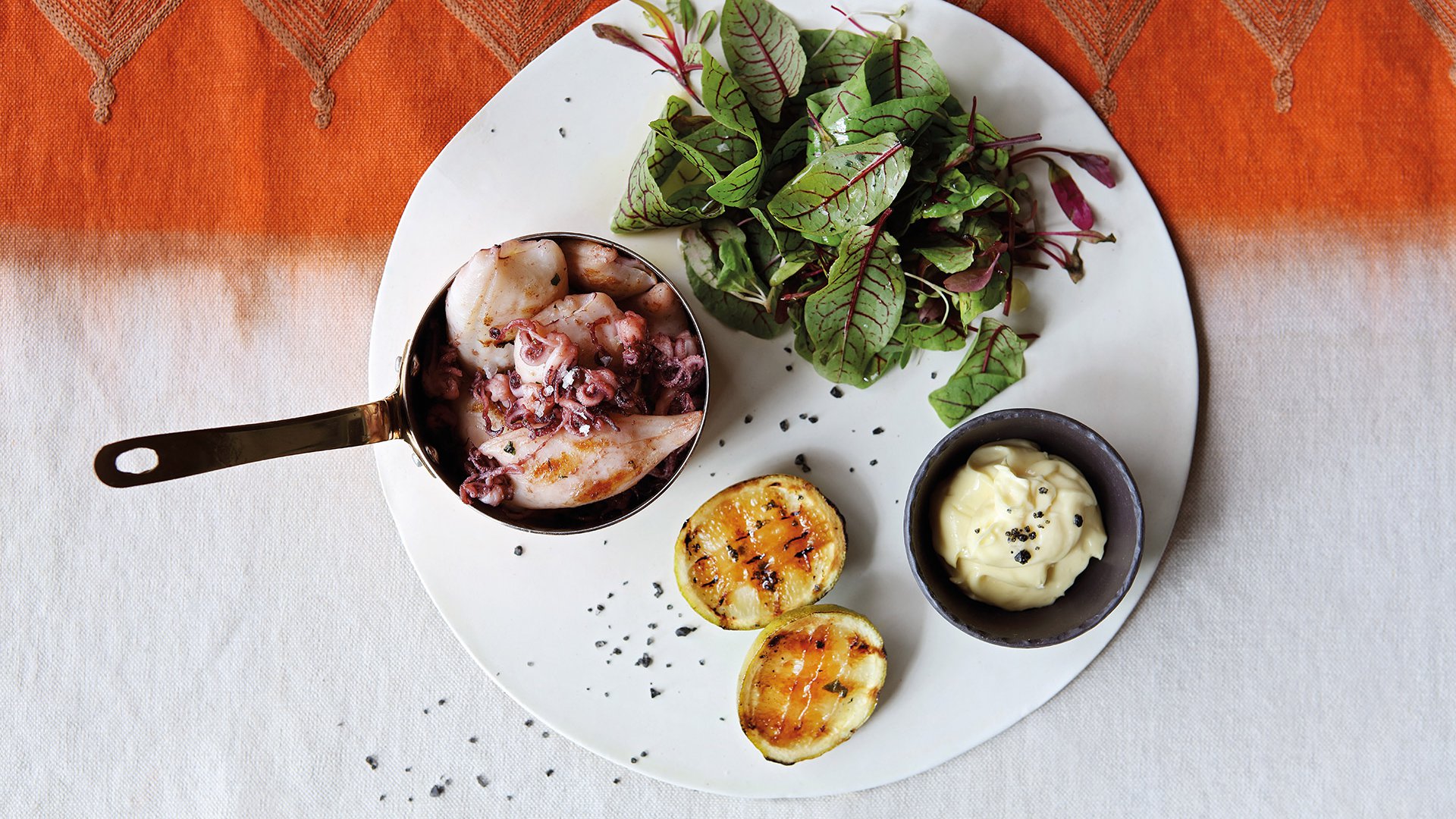
The multiples of all of this are unbelievable. If you just change one thing… the multiple savings of demand on resources are phenomenal. You don’t solve the problem by going to the climate conference and standing on your feet and presenting wonderful papers to wonderful people – all of whom are trying to make themselves look important.
Where you get results is when you change your individual behaviour. Even if you just switch a light off or grow one tomato in your corner garden, and that tomato means you buy one less tomato from far away, the impact is huge.
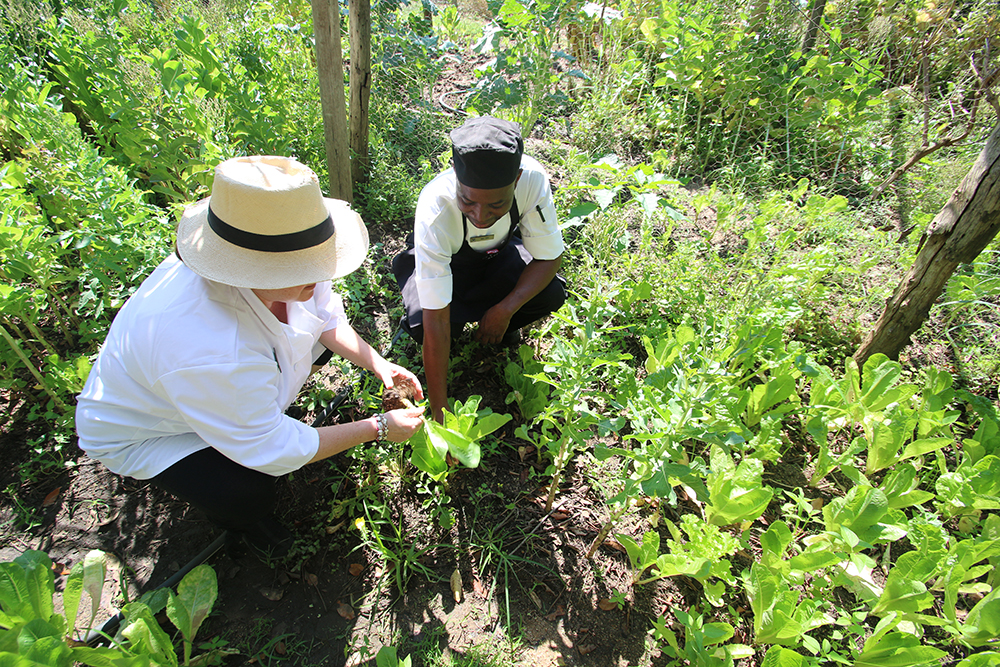
Anna has been refusing plastic from suppliers and is, in some cases, sending plastic wrappers back to our suppliers. As a result, they have started realising how much excess they were creating. Now they’re holding negotiations about this. Together we are beginning to experiment with other options. We have started using rotating food containers. The suppliers un-package the food their side and put all our items into the new containers, which they then send to us. We send them back the empty containers. And now we don’t have a whole waste problem.
In fact, we are busy building a waste plant, but we’re actually worried, because we don’t have enough waste to put into it. So there’s an example of accelerated abundance. By simply changing your behaviour.
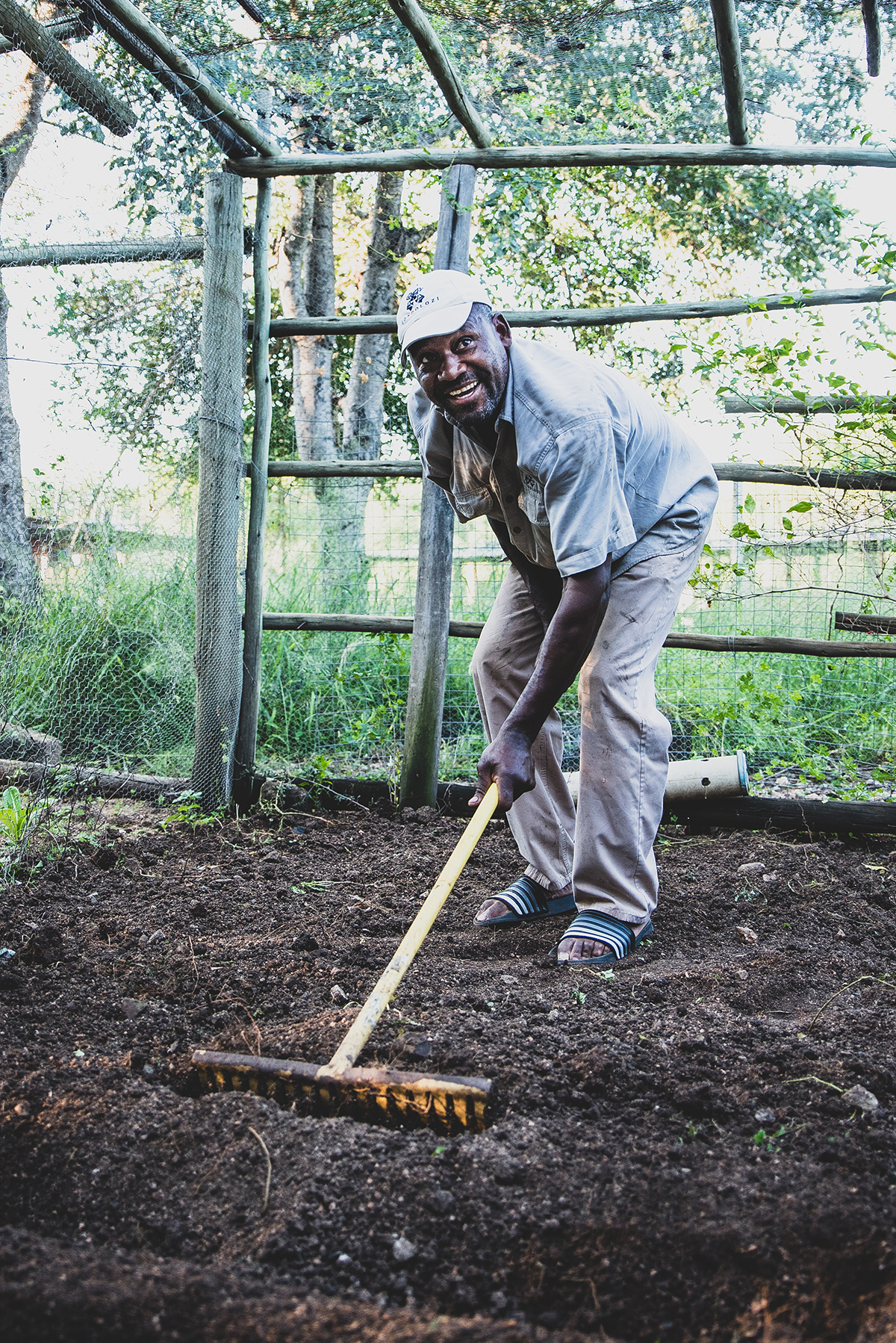
Which lessons have stood out for you from our conversations with Dave Varty? What small changes do you think you could start to make?
Read more in: Londolozi, a Model for a Better World
